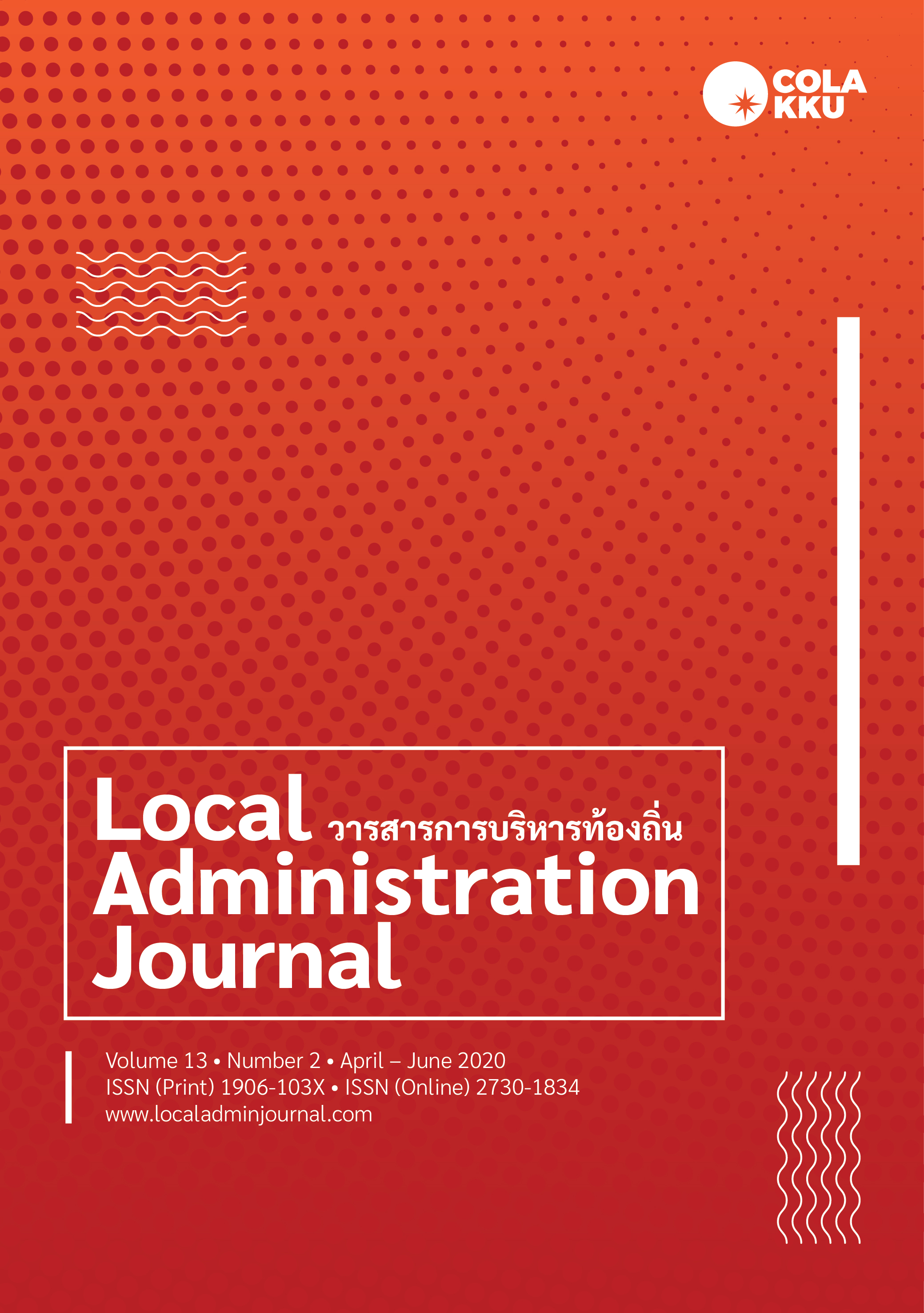A Model of Poverty Alleviation in the Northeast of Thailand by the Royal Initiative Discovery Foundation
Keywords:
Poverty alleviation, Royal Initiative Discovery Foundation, revolving loan fund, sustainable water management and self-reliant villagesAbstract
This article studies the methods of operation and the consequences of the poverty alleviation project of the Royal Initiative Discovery Foundation (Pid Tong Lang Pra Foundation) as a model of poverty alleviation. The model applies budget support methods in the form of working capital allocation and technical assistance to the target communities by the staff of the Royal Initiative Discovery Foundation as a mentoring team. It examines the case of the sustainable water management project of Huai Klai Reservoir with a focus on two villages in Udon Thani Province. The main data used in this study were obtained from in-depth interviews with community leaders and staff of the Royal Initiative Discovery Foundation, revolving loan board members, and members of the local enterprise groups. The data were analyzed using content analysis methods, using minimum essential need indicators or multi-dimensional poverty index. The research found that the model is successful. The people in the two case study villages were able to become free of poverty according to the five dimensions of the indicators and elevated themselves to become sustainable, self-reliant villages. The study concludes that a strategy for sustainable reduction in poverty must include capacity building of the target population. In addition, this must be coupled with a strengthening of the economic foundation of the community. When implemented in tandem, these two approaches should lead to sustainable prosperity.
References
References
Credit Swisse. (2019). Global Wealth Report 2019. Zurich: Credit Swisse Research Institute. Retrieved from https://www.credit-suisee.com
Department of Community Development. (2018). Multidimensional Poverty Index. Bangkok: Department of Community Development. (In Thai)
Kamnuansilpa, P. & Sudhiipongpracha, T. (2016). Development of Thai government administration: from the past to the future. Klang Nana Wittaya Printing. (In Thai)
Moongsawad, P. (2004). “The Philosophy of the sufficiency economy: a contribution to the theory of development”, Asia-Pacifc Development Journal. 21(1), 123 - 143.
National Center for Electronic and Computer Technology. (2018). Overview of poverty in 2018. Retrieved from https://www.tpmap.in.th/2561 (In Thai)
Office of the National Economic and Social Development Board. (2002). Document for the 2002 Annual Meeting: "The Well-being of the Thai People: 5 Years after the Economic Crisis" Retrieved from http://www.nesdb.go.th/(In Thai)
Pasuk, P. & Chris, B. (2015). Unequal Thailand: Aspects of Income, Wealth and Power. Singapore: Singapore University Press.
Priyanut, P. (2004). Research Note: Sufficiency Economy. ASEAN Economic Bulletin, 21(1),
-135.
Royal Initiative Discovery Foundation (2018). Sustainable management of the Huay Khlai Reservoir in Udon Thani Province. Retrieved from http://www.pidthong.org. (in Thai)
Vimolsiri, P. (2018). Policy preparation for solving poverty and the use of many tools. Retrieved from https: //www.nesdb.go.th. (In Thai)
World Bank. (2018). World Bank Poverty Threshold. (population below poverty level). Retrieved from indexmundi.com/g/r.aspx?=69.
Downloads
Published
How to Cite
Issue
Section
License
The copyright of all articles published in the Local Administration Journalis owned by the College of Local Administration, Khon Kaen University.



